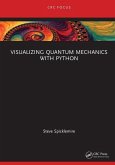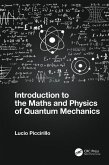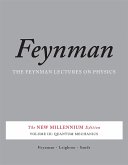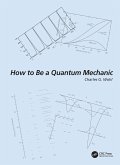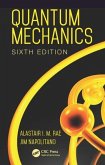Quantum Mechanics can be an abstract and complex subject. Students often complain of confusion, struggle, and frustration as they try to master the topic. The goal of this book is to reduce the complexity and clarify the abstractions with concrete visual examples driven by simple python programs. It is assumed that the reader is concurrently taking a course in quantum mechanics, or self-studying quantum mechanics, but is looking for supplementary material to help with understanding and visualizing how quantum mechanics works.
The focus of this book is writing python programs to visualize the underlying behavior of the mathematical theory. The background needed to understand quantum mechanics is differential equations, linear algebra and modern physics. We need a strong foundation in differential equations and linear algebra because the behavior of quantum systems is governed by equations that are written in terms of these concepts. Modern physics includes concepts suchas special relativity and quantum phenomena like the photoelectric effect and energy quantization that the theory of quantum mechanics seeks to explain. This book is also not an introduction to the python programming language, or to numpy, or even to VPython. However its programming examples start simply and grow more complex as the chapters progress, so deep expertise in any of these is not a pre-requisite.
Key features:
· Provides an accessible and practical guide to the abstractions in quantum mechanics with concrete visual examples driven by simple python programs.
· Contains few derivations, equations, and proofs.
· For complete beginners of python programming, appendix B serves as a very brief introduction to the main concepts needed to understand the code in this book.
The focus of this book is writing python programs to visualize the underlying behavior of the mathematical theory. The background needed to understand quantum mechanics is differential equations, linear algebra and modern physics. We need a strong foundation in differential equations and linear algebra because the behavior of quantum systems is governed by equations that are written in terms of these concepts. Modern physics includes concepts suchas special relativity and quantum phenomena like the photoelectric effect and energy quantization that the theory of quantum mechanics seeks to explain. This book is also not an introduction to the python programming language, or to numpy, or even to VPython. However its programming examples start simply and grow more complex as the chapters progress, so deep expertise in any of these is not a pre-requisite.
Key features:
· Provides an accessible and practical guide to the abstractions in quantum mechanics with concrete visual examples driven by simple python programs.
· Contains few derivations, equations, and proofs.
· For complete beginners of python programming, appendix B serves as a very brief introduction to the main concepts needed to understand the code in this book.



